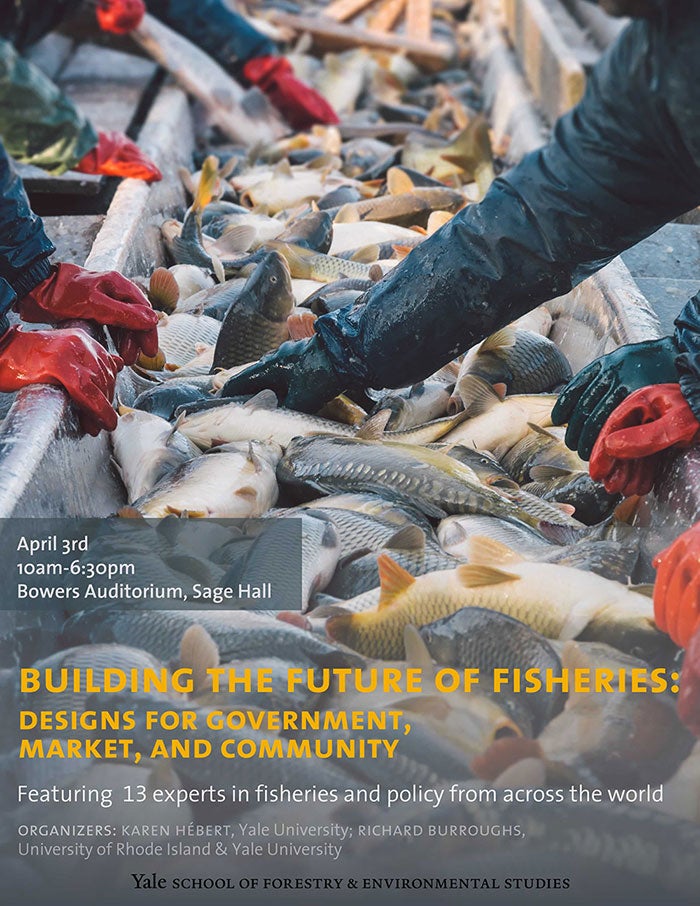The past few decades have brought dramatic changes to commercial fisheries worldwide. Amid ongoing concern about the health of global fishing stocks, fishing communities have confronted challenges from volatile global seafood markets and sharp regulatory shifts. Yet novel institutional arrangements are emerging in turn as a means of shaping the course of fisheries transformation toward positive ecological, economic, and social outcomes.
On Friday, April 3, the Yale School of Forestry & Environmental Studies will host a daylong workshop, “
Building the Future of Fisheries: Designs for Government, Market, and Community,” which will convene an interdisciplinary and international group of scholars and practitioners whose research analyzes the mechanisms that underlie core dilemmas facing fisheries and fishing communities at present while also identifying pathways for building futures that better reflect more integrative and collective goals.
Panels will explore topics such as the role of private property in the regulation of common resources; the rise of certification regimes and new relationships between fish harvesters and consumers; and novel modes of fisheries co-management. Drawing together case studies from around the world, the workshop will ask whether it is possible to identify the attributes of fisheries systems that minimize adverse consequences on harvesters, consumers, and biological populations, thus representing the most crucial elements for creating more durable and equitable fisheries systems in the future. The workshop will culminate in a roundtable discussion among invited participants.
The event will begin at 10 a.m. in Bowers Auditorium, Sage Hall, 205 Prospect Street. It is free and open to the public.
The event is organized by
Karen Hébert, an Assistant Professor of Environmental Anthropology at the Yale School of Forestry & Environmental Studies (F&ES), and
Richard Burroughs, a Professor of Marine Affairs at the University of Rhode Island and Adjunct Professor of Coastal Science and Policy at F&ES.
“This workshop brings together some of the most interesting and important thinkers on fisheries and fishing communities today,” said Hébert. “Their work identifies not merely the challenges facing fisheries at present but how these might be transformed toward more positive futures.”
